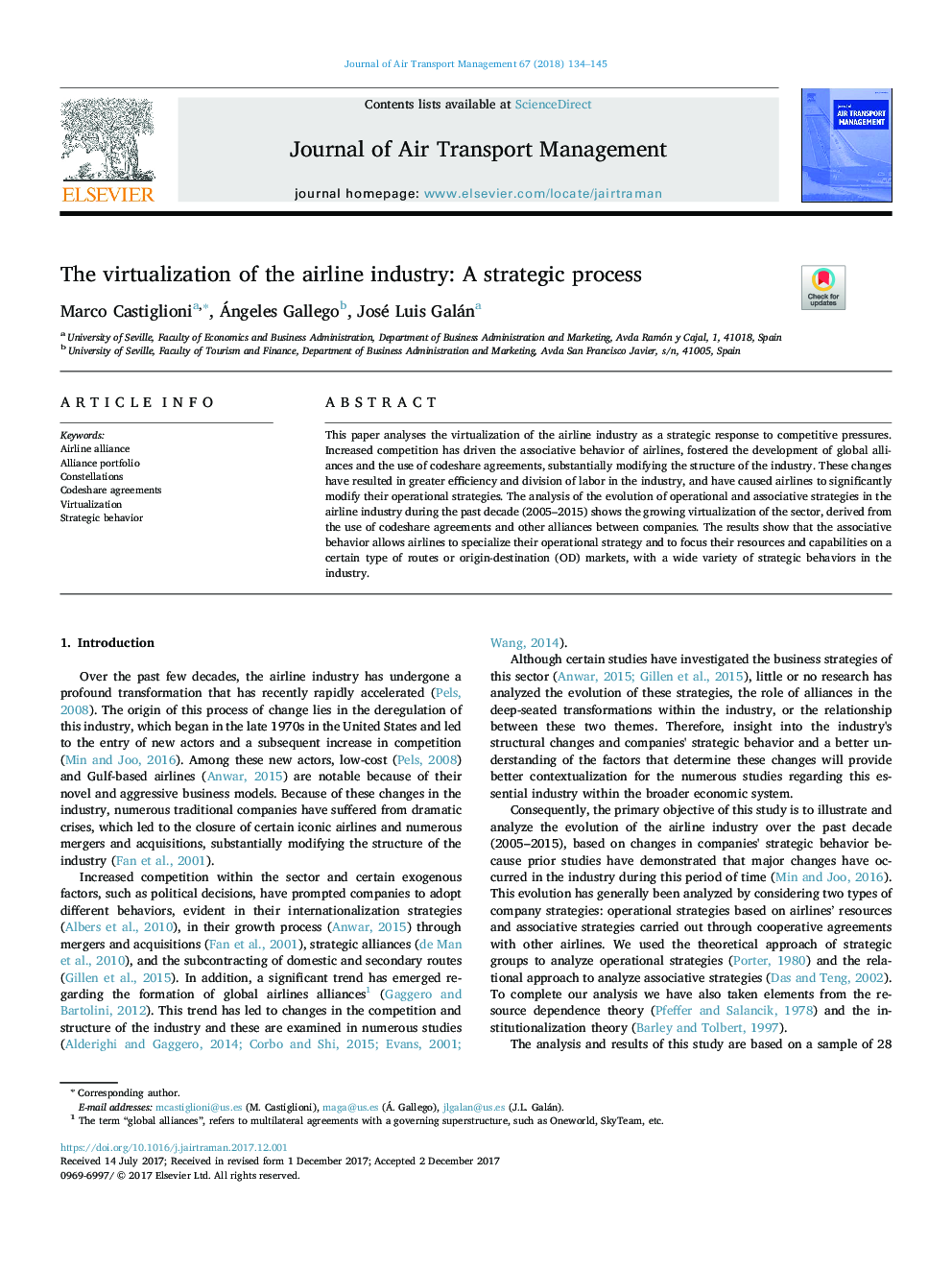| Article ID | Journal | Published Year | Pages | File Type |
|---|---|---|---|---|
| 7435294 | Journal of Air Transport Management | 2018 | 12 Pages |
Abstract
This paper analyses the virtualization of the airline industry as a strategic response to competitive pressures. Increased competition has driven the associative behavior of airlines, fostered the development of global alliances and the use of codeshare agreements, substantially modifying the structure of the industry. These changes have resulted in greater efficiency and division of labor in the industry, and have caused airlines to significantly modify their operational strategies. The analysis of the evolution of operational and associative strategies in the airline industry during the past decade (2005-2015) shows the growing virtualization of the sector, derived from the use of codeshare agreements and other alliances between companies. The results show that the associative behavior allows airlines to specialize their operational strategy and to focus their resources and capabilities on a certain type of routes or origin-destination (OD) markets, with a wide variety of strategic behaviors in the industry.
Related Topics
Social Sciences and Humanities
Business, Management and Accounting
Strategy and Management
Authors
Marco Castiglioni, Ángeles Gallego, José Luis Galán,
